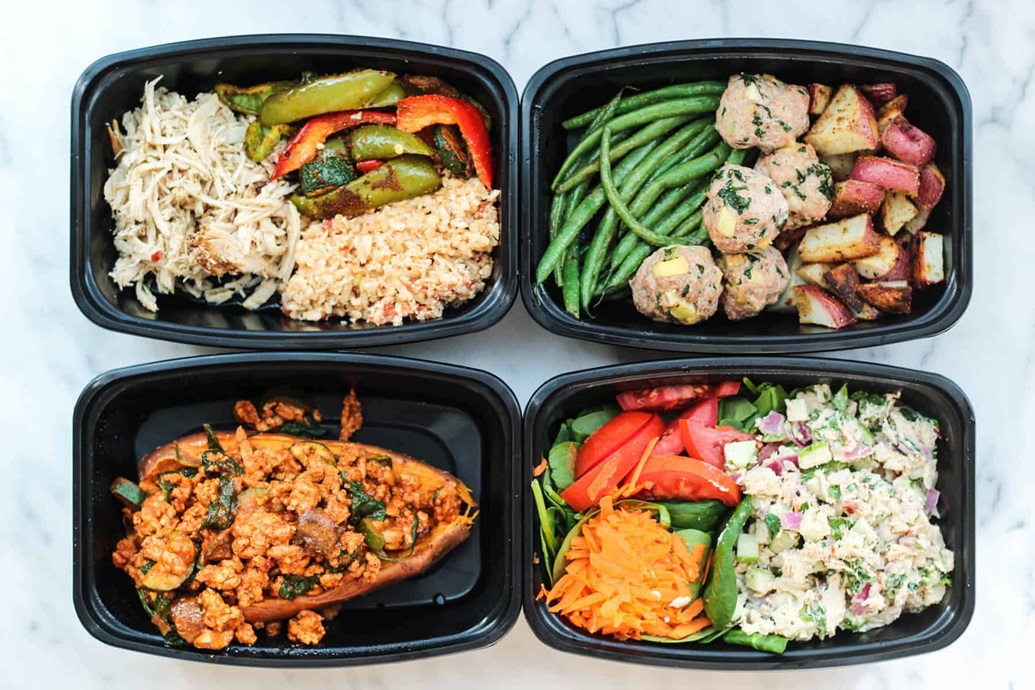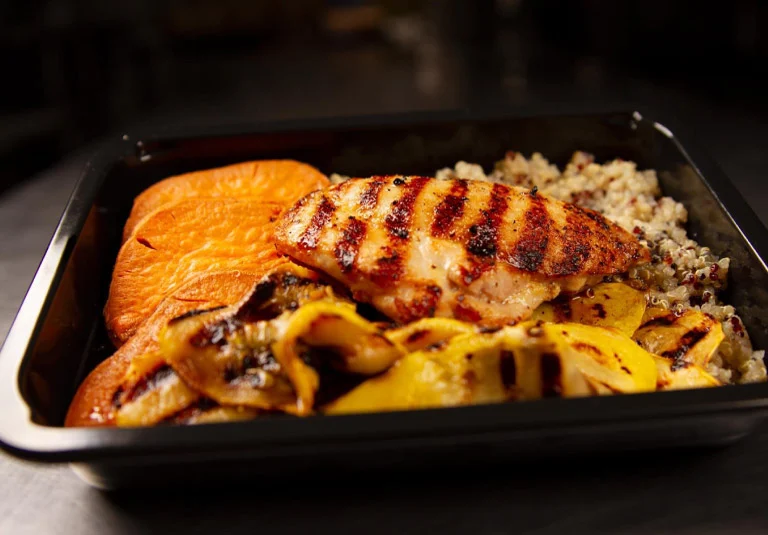Is 5 Meals a Day Enough for Bulking?
Bulking is the process of gaining muscle mass by consuming a caloric surplus and following a structured resistance training program.
For those looking to put on size, questions often arise about meal frequency, calorie intake, and effective meal planning.
We’ll break down whether five meals a day is sufficient for bulking, how many calories are optimal, and the best meal prep strategies. We’ll also provide practical advice for skinny individuals struggling to gain weight.
5 Meals a Day for Bulking
The number of meals per day needed for bulking depends on total calorie and macronutrient intake rather than frequency alone. While eating five meals a day can be effective, the key is ensuring that each meal contains the necessary nutrients to support muscle growth.
Total Caloric Intake Matters More Than Meal Frequency – Whether you eat three, five, or six meals a day, the priority should be consuming enough calories and protein.
Meal Timing for Optimal Muscle Growth – Spreading meals evenly throughout the day helps maintain energy levels, stabilize blood sugar, and support muscle protein synthesis.
Portion Size and Macronutrient Distribution – Each meal should be balanced with adequate protein, carbohydrates, and healthy fats to fuel workouts and promote muscle repair.
For most people, five meals per day provides a manageable structure to meet their caloric needs without excessive bloating or discomfort.
Is 500 Calories Too Much for a Bulk?
The ideal caloric surplus depends on an individual’s metabolism, activity level, and muscle-building goals.
Understanding Caloric Surplus – A caloric surplus is necessary for muscle growth, but excessive calorie intake can lead to unnecessary fat gain.
500 Calories is a Moderate Surplus – Generally, a 300-500 calorie surplus is considered ideal for lean bulking. This allows muscle gain with minimal fat accumulation.
Adjusting Based on Progress – If weight gain is too slow, increasing the surplus to 600-700 calories might be necessary. If excessive fat gain occurs, reducing the surplus slightly can help.
500 calories is a reasonable surplus for most individuals aiming to bulk, particularly for those with a fast metabolism.
Best Meal Preps for Bulking
Meal prepping helps ensure consistent nutrition and prevents the temptation of unhealthy, low-quality foods. Here are some effective meal prep ideas for bulking:
High-Calorie, High-Protein Meal Ideas:
Chicken, Rice, and Vegetables – A classic bodybuilding meal packed with protein and complex carbohydrates.
Ground Beef with Sweet Potatoes and Avocado – Provides high-quality protein, healthy fats, and slow-digesting carbs.
Salmon with Quinoa and Asparagus – Offers omega-3 fatty acids and a balanced macronutrient profile.
Egg and Oatmeal Scramble – A great breakfast option rich in protein and fiber.
Greek Yogurt with Granola and Nuts – A convenient, high-calorie snack full of protein and healthy fats.
Tips for Effective Meal Prepping:
Cook in Bulk – Prepare large portions to last several days.
Use Calorie-Dense Ingredients – Adding nuts, avocado, and olive oil can boost calorie intake without excessive volume.
Stay Hydrated – Drinking enough water is crucial for digestion and muscle recovery.
Consistency is Key – Eating consistently over weeks and months leads to sustained muscle growth.

How Skinny Guys Can Bulk Up
Skinny individuals, often referred to as “hard gainers,” may struggle with weight gain due to a fast metabolism and smaller appetite. Here’s how they can optimize their bulking process:
Increase Caloric Intake
- Eat calorie-dense foods like nuts, seeds, dairy, and healthy oils.
- Consume liquid calories such as smoothies, protein shakes, and whole milk.
- Eat more frequently if large meals feel overwhelming.
Prioritize Strength Training
- Focus on compound movements like squats, deadlifts, bench presses, and pull-ups.
- Lift heavy weights with progressive overload to stimulate muscle growth.
- Train 4-5 days a week to maximize hypertrophy.
Optimize Protein Intake
- Aim for 1.0-1.2 grams of protein per pound of body weight.
- Include sources like lean meats, eggs, dairy, and protein supplements.
- Spread protein intake evenly across meals.
Improve Recovery and Sleep
- Sleep at least 7-9 hours per night for optimal muscle repair.
- Manage stress to prevent excessive cortisol, which can hinder muscle gain.
Bulking effectively requires a strategic approach to nutrition, meal timing, and strength training.
While 5 meals a day can be sufficient for most individuals, the primary focus should be on total calorie and protein intake.
A 500-calorie surplus is generally ideal for lean muscle gain, and meal prepping high-calorie, nutrient-dense meals can make bulking easier.
For skinny individuals, consuming more calories, lifting heavy, and prioritizing recovery will help maximize muscle growth.
By following these principles consistently, anyone can achieve their bulking goals successfully.

Is it Harder For Skinny People to Bulk
Yes, it is generally harder for naturally skinny individuals (often called “hardgainers” or ectomorphs) to bulk up due to their fast metabolism and difficulty in consuming a calorie surplus. However, with the right approach, they can gain muscle effectively.
Challenges for Skinny People When Bulking:
Fast Metabolism – They burn calories quickly, requiring a higher caloric intake.
Low Appetite – Eating enough food can be challenging.
Difficulty Gaining Fat & Muscle – They may struggle to add overall mass.
Strategies to Bulk Effectively:
Increase Caloric Intake – Consume more calories than burned, focusing on nutrient-dense foods.
Eat Protein-Rich Foods – Aim for 0.8–1.2 grams of protein per pound of body weight.
Strength Training – Focus on compound lifts (squats, deadlifts, bench press) with progressive overload.
Frequent Meals & Snacks – Eating 5–6 meals a day can help meet calorie goals.
Adequate Rest & Recovery – Muscle growth occurs during rest, so prioritize sleep and recovery.
Can You Bulk in 4 Weeks?
Yes, but results will be limited. Muscle gain typically occurs at a rate of 0.5–1 pound per week for most beginners. In four weeks, you can expect to gain 2–4 pounds of muscle with a well-structured plan. However, noticeable physical changes may take longer.
To maximize a short bulk:
- Consume a surplus of 250–500 calories daily
- Follow a structured strength training program
- Prioritize high-protein, nutrient-dense foods
- Avoid excessive cardio
While 4 weeks is a short timeframe, it’s enough to start seeing strength improvements and minor muscle definition. For significant muscle gains, a 3–6 month bulk is ideal.



